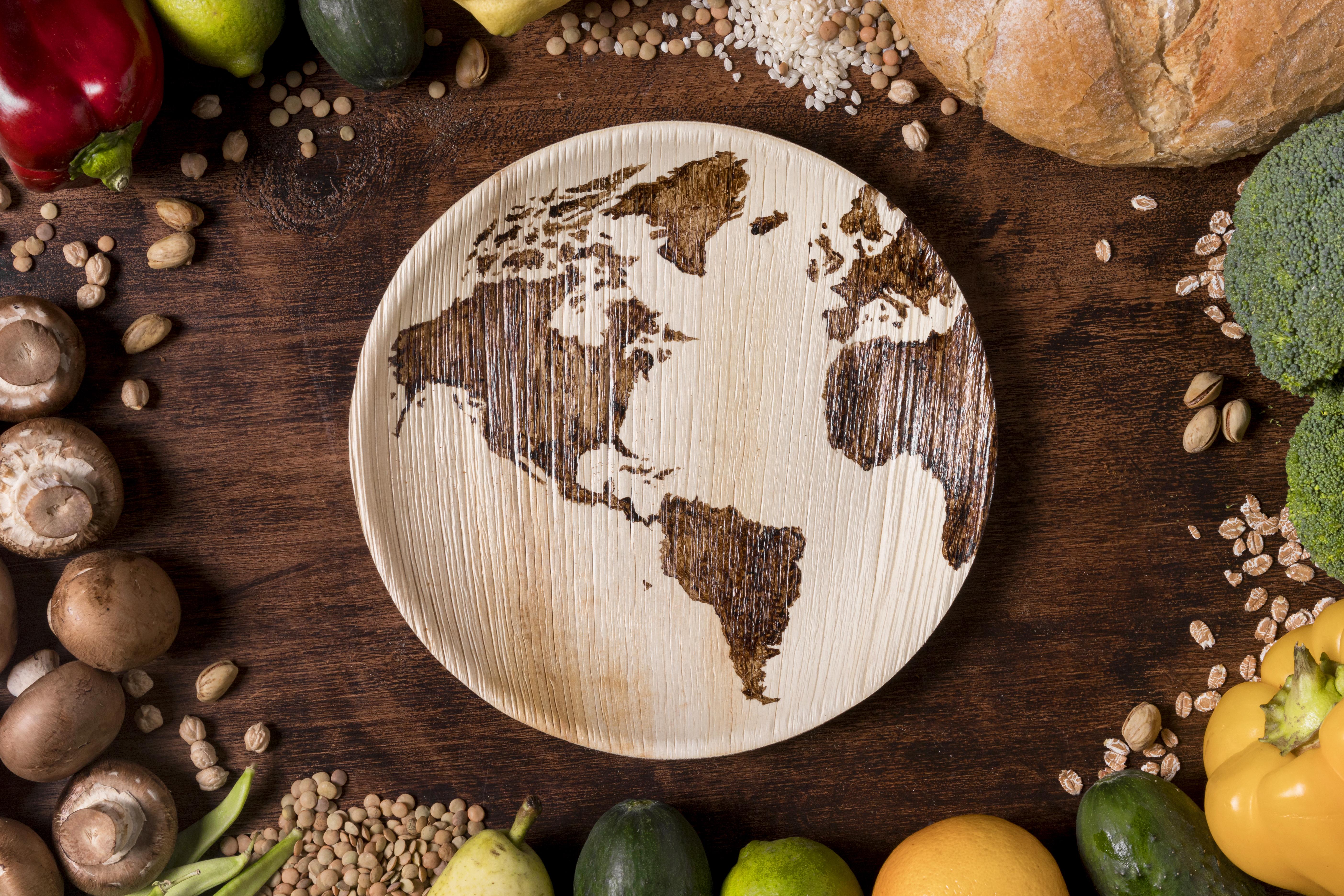Global Food Security: How Plant Proteins Drive Change?

This post is also available in:
This post is also available in:
![]() Español (Spanish)
Español (Spanish) ![]() Ελληνικά (Greek)
Ελληνικά (Greek)
Amidst the challenges of a growing population, climate change, and dwindling resources, the imperative of ensuring food security has never been more pressing. As conventional agricultural methods struggle to keep pace with the needs of our expanding global population, attention is now squarely focused on plant proteins as a sustainable answer to feed the world. In this article you will uncover the crucial role of plant proteins in tackling food security challenges and forging a robust, sustainable food system for the future.
The Growing Challenge of Food Security
Food security, defined as the consistent access to adequate and nutritious food, is a fundamental human right. However, achieving this goal on a global scale has become increasingly complex. The United Nations estimates that the global population will reach 9.8 billion by 2050, placing unprecedented pressure on our ability to produce enough food to feed everyone.
Traditional agricultural practices, heavily reliant on animal farming, contribute significantly to deforestation, greenhouse gas emissions, and water scarcity. As climate change disrupts weather patterns and intensifies these challenges, it becomes imperative to explore alternative and sustainable protein sources. This is where plant proteins emerge as a promising solution.
What is the Role of Plant Proteins in Sustainable Agriculture?
Plant proteins offer a sustainable alternative to animal-based proteins, addressing environmental and nutritional concerns. Unlike traditional livestock farming, plant protein production requires less land, water, and resources. Crops such as lentils and chickpeas have protein-rich profiles and can be cultivated more efficiently, making them essential components of a sustainable agricultural future.
Moreover, plant proteins contribute to biodiversity preservation by reducing the environmental impact associated with large-scale animal farming. Sustainable farming practices, such as agroforestry and crop rotation, can further enhance the resilience of plant protein production systems.

How to Meet the Nutritional Needs of a growing and diverse population
One of the critical aspects of food security is ensuring that the food produced meets the nutritional requirements of a diverse population. Plant proteins are rich in essential amino acids and provide a wide array of vitamins, minerals, and antioxidants. For example, packed with essential amino acids, high protein, vitamin E and fibres, minerals (such as potassium, magnesium, and iron), and antioxidants, lupin serves as an exceptional substitute for conventional protein sources like meat and dairy. Lentils provide essential amino acids for muscle growth and repair. They are also abundant in dietary fibre, folate, vitamin B6, vitamin C, iron, magnesium, and potassium. Incorporating a variety of plant-based sources into diets can contribute to improved health outcomes and help address malnutrition and related health issues.
Innovation in Plant-Based Products
The food industry is experiencing a revolution in plant-based product development. From plant-based burgers that mimic the taste and texture of traditional meat to the popularity of dairy-free milk substitutes like almond milk, oat milk, and soy milk. Options like chickpea snacks, lentil chips, and roasted edamame have become increasingly popular. These snacks are not just tasty, but also offer a great plant-based protein source, making them a perfect choice for convenient on-the-go energy. This not only provides consumers with more choices but also reduces the reliance on resource-intensive animal agriculture.
Global Initiatives and Policies
Governments and international organizations worldwide increasingly acknowledge the pivotal role that plant proteins play in pursuing global food security objectives. This growing awareness has catalyzed a surge in initiatives dedicated to fostering sustainable agriculture, delving into pioneering farming practices, and channeling investments into the research and development of plant proteins.
The momentum behind these initiatives underscores a collective commitment to addressing the challenges of food security through a multifaceted approach. As the importance of plant proteins gains prominence, governments and organizations are actively engaging in research endeavours to enhance the efficiency and sustainability of agricultural practices. These efforts seek to maximize yield and prioritize environmental considerations and long-term ecological balance.

VALPRO Path Project Contribution
The Horizon Europe VALPRO Path project acknowledges the need for a self-sustainable Europe, given the European Union’s heavy reliance on imported plant protein for food and livestock feed. This project prioritizes the development of a self-sufficient system by concentrating on optimizing plant protein production. By shifting from conventional practices to innovative approaches, the project strives to expedite this transformative process.
VALPRO Path is strategically siting dynamic Innovation Production Systems (IPSs) in Germany, Ireland, Italy, Portugal, and Denmark. Their particular emphasis is on high-value protein crops such as pea, lupin, chickpea, faba bean, soybean, and lentils.
With a comprehensive focus on various aspects, including on-farm processes and the creation of sustainable business models, VALPRO Path aims to guide all stakeholders in the food chain toward responsible and self-reliant plant protein production. By pioneering new possibilities, the project seeks to validate and showcase effective methods to enhance plant protein production for both food and feed within the EU. This project significantly bolsters Europe’s food security and reduces dependence on external sources for crucial nutritional components.









































































